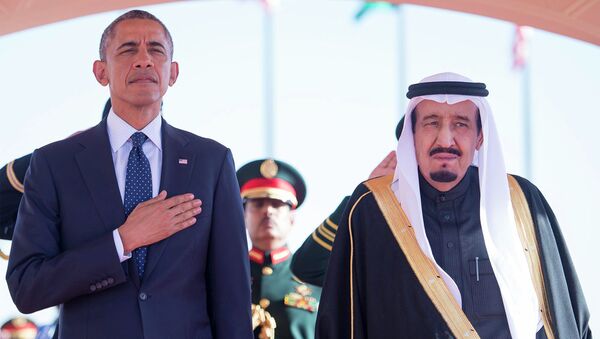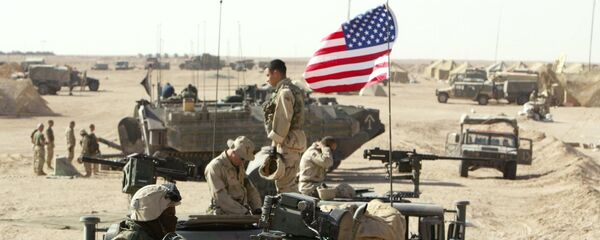The adoption of the Justice Against Sponsors of Terrorism Act (JASTA) is likely to drive a wedge between Washington and Riyadh, Yury Zinin, leading research fellow at the Moscow State Institute of International Relations (MGIMO) writes in his recent article for New Eastern Outlook.
"The frustration that Riyadh and other Gulf countries have shown towards this development, in the opinion of the Egyptian newspaper Al-Ahmar, clearly shows that JASTA will increase tensions in US-Saudi relations even further," Zinin points out.
On the other hand, Zinin stresses, some analysts note that "Riyadh has little to nothing to worry about, since it's highly unlikely that American families will be able to win against Saudi Arabia in US courts."
"One would be demanded to provide irrefutable evidence that must prove the involvement of Saudi officials in the preparations of the attacks, which is a pretty tall order," the Russian academic emphasizes.
However, a number of Arab lawyers have already dubbed the law "a direct violation of the concept of state sovereign immunity," he stresses.
If the US court eventually obligates Saudi Arabia to pay compensation to the families, Riyadh may reject the idea and start withdrawing its financial reserves from American banks. However, in such a scenario Washington is likely to threaten the House of Saud "with a complete breakup of all political, economic and military ties."
In accordance with the second scenario, the royal elites may follow in former Libya leader Muammar Gaddafi's footsteps: in 2003 he compensated for the downing of a Boeing passenger airliner over Lockerbie by two Libyan nationals in 1988. However, it would deal a heavy blow to the already embattled Saudi economy.
Commenting on the issue, Semen Bagdasarov, director of the Center for Middle Eastern and Central Asian Studies, recalled that Riyadh has repeatedly threatened to sell $750 billion in US assets but is so far shown no signs of putting its threat into practice.
"Perhaps, it would be economically disadvantageous [to Riyadh]," Bagdasarov assumed in an interview with online newspaper Vzglyad, stressing that that the JASTA will inevitably deepen the rift between the Americans and the Saudis.
Bagdasarov assumed that the influence of the Saudi lobby in Washington has been apparently diminished by the strong Iranian lobby which comprises Iranian exiles dreaming of further rapprochement between the US and Tehran.
Indeed, it was the Obama administration's willingness to strike a nuclear deal with Iran that sparked concerns and suspicions in Riyadh.
For his part, Dmitry Drobnitsky, expert in American domestic and foreign policy, suggested that by approving JASTA the Congress has made a mere "populist decision," since US congressmen just wanted to be re-elected. He drew attention to the fact that the decision was bi-partisan.
However, the White House dubbed the move a "dangerous precedent."
"[JASTA] will have grave implications for the national security of the United States. The most damaging consequence would be for those US government officials who dutifully work overseas on behalf of our country. The principle of sovereign immunity protects US officials every day, and is rooted in reciprocity," CIA Director John Brennan warned as quoted by The Washington Free Beacon.






